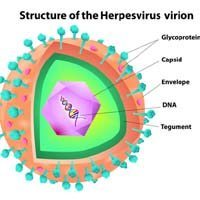Expert Says Malignant Mesothelioma Research ‘Turned a Corner’ in 2021
 An internationally-known mesothelioma specialist says 2021 has been one of the best years yet for malignant mesothelioma research, giving patients and their families more reason than ever to be hopeful.
An internationally-known mesothelioma specialist says 2021 has been one of the best years yet for malignant mesothelioma research, giving patients and their families more reason than ever to be hopeful.
Hedy Lee Kindler, MD, is Director of the University of Chicago Medical Center’s Mesothelioma Program. In a commentary in JCO Oncology Practice, Dr. Kindler says the outlook for mesothelioma sufferers this year is “far brighter than it has been for a very long time.”
Dr. Kindler points to several recent advances in malignant mesothelioma research and treatment as reasons for optimism. The FDA approved the second systemic therapy for mesothelioma in late 2020. This year saw five positive mesothelioma clinical trials.
Kindler says these advances suggest that the future may finally be better than the past for mesothelioma patients and their loved ones.
Positive Mesothelioma Research Trials this Year
According to Dr. Kindler, one of the most important malignant mesothelioma research findings came from the phase III CheckMate 743 trial. This trial compared first line treatment with the immunotherapy drugs ipilimumab and nivolumab (ipi-nivo) to standard chemotherapy for unresectable mesothelioma.
Checkmate 743 showed this new approach improved overall survival by four months among all mesothelioma subtypes. The benefits were also lasting. Overall survival at 2 years was 40 percent among mesothelioma patients who had this treatment. It was just 27 percent among those on standard therapy.
Other important malignant mesothelioma research studies published in 2021 include:
- CONFIRM – This phase III study found that nivolumab (Opdivo) could extend survival for patients whose mesothelioma comes back after treatment.
- NVALT19 – This phase II study showed that maintenance therapy with gemcitabine (Gemzar) was a safe and effective second-line treatment for mesothelioma.
- VIM – This phase II trial suggested that treatment with vinorelbine may boost progression free survival for people with relapsed malignant mesothelioma.
- RAMES – This was also a phase II trial. It showed that adding ramucirumab to gemcitabine was even better as a second-line mesothelioma treatment than gemcitabine alone.
“In this past 1 year, a total of five positive randomized studies have been reported in this uncommon disease…potentially offering additional treatment options for patients who once had very limited choices,” Dr. Kindler writes.
The Future of Mesothelioma Treatment
Of the most recent malignant mesothelioma research trials, Dr. Kindler says only CheckMate 743 “has truly transformed the standard of care.” Before ipi-nivo, the only systemic treatment option for mesothelioma was chemotherapy with pemetrexed (Alimta).
Although the ipi-nivo treatment approach is a breakthrough, it is not a cure for mesothelioma. It also works much better for some patients than for others. Malignant mesothelioma research showed patients with non-epithelioid mesothelioma lived more than twice as long with this immunotherapy treatment than with chemotherapy.
The next step will be to figure out ways to refine this treatment and choose the best candidates.
“As further data emerge, key differences in outcome by histology and programmed cell death ligand-1 (PD-L1) status may lead to different treatment choices for some of these patient subsets,” concludes Dr. Kindler.
In the meantime, Dr. Kindler and others say a combination of standard chemotherapy and bevacizumab is still a reasonable first-line treatment choice – especially for patients with epithelioid mesothelioma.
Source:
Kindler, HL, et al, “Systemic Therapy for Mesothelioma: Turning the Corner”, December 21, 2021, JCO Oncology Practice, https://ascopubs.org/doi/10.1200/OP.21.00785





